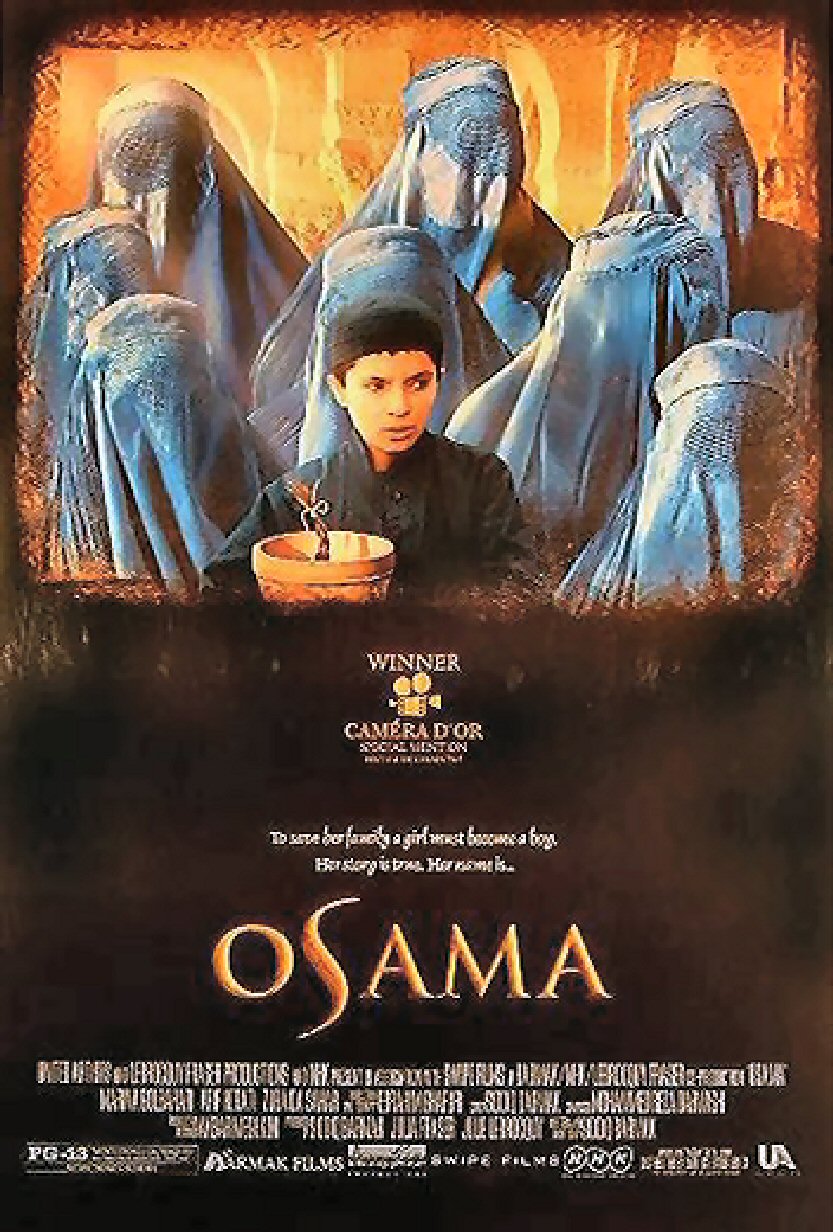January 26, 2004
OSAMA – A Movie Review – Golden Globe Winner
Plight of the Muslim Woman – A Journey Into Despair
By Fred H. Arm

The winner of Best Foreign Language Film at the Golden Globes last night is the first feature-length film from Afghanistan. Shot by fledgling writer/editor/director, Siddiq Barmak, "Osama," the film exposes the desperation and terror of a beautiful twelve-year-old girl (Marina Golbahari) during the Taliban era in Afghanistan. She becomes her widowed mother (Zubaida Sahar) and grandmother’s only hope for survival since the Taliban rule decreed that her female family and thousands of others like them cannot appear in public without a male relative as escort. The Taliban has also decreed that women would not be permitted to work.
The girl, her mother, and a young street urchin, Spandi, (Arif Herati) survive a violently suppressed demonstration launched by Afghan women. The girl and her mother had secretly worked in a hospital until the Taliban dismissed all the staff and closed its doors. Faced with imminent starvation, the girl's mother decides to disguise her daughter as a boy, so that she will have an opportunity to work. They decide upon the name Osama as the disguised young male. The film reaches critical mass when Osama, as a boy, along with Spandi, are taken to a Taliban training camp where it becomes increasingly difficult to keep her sex a secret. Marina Golbahari’s innocent beauty and ability to express a wide range of emotions is sure to flower into the making of a talented and beautiful actress.
The film is the epitome of everything negative surrounding the Muslim world’s treatment of women. You cannot help but to despise the Taliban’s inhuman treatment of women and the palpable fear that even the men experience in a land run by religious and hypocritical zealots. You could consider the film a downer, however, it plays like a thriller, with tensions kept high by focusing intently on the girl. It presents a believable and disturbing window into the soul of a society devastated by repression and war.
Director Barmak shot this film on a shoestring budget with inexperienced actors, and created a cinematic masterpiece. He incredibly elicits professional performances from amateurs, building tension and intensity from the first opening scenes of the Taliban spraying crowds of women clad in shapeless blue Burkas. Since Barmak received much of his training in Iran, the film is typical of the Iranian style of filmmaking by ending abruptly with no resolution of the conflict. It is a film worthy of high praise; however, be prepared for experiencing a great deal of anger and anguish by witnessing the subjugation of Muslim women and children without much resolution or hope.
Opens in the Bay Area on February 27, 2004 and on Feb. 6th in Los Angeles and New York
v
Posted by: Julie at February 27, 2004 03:07 PM